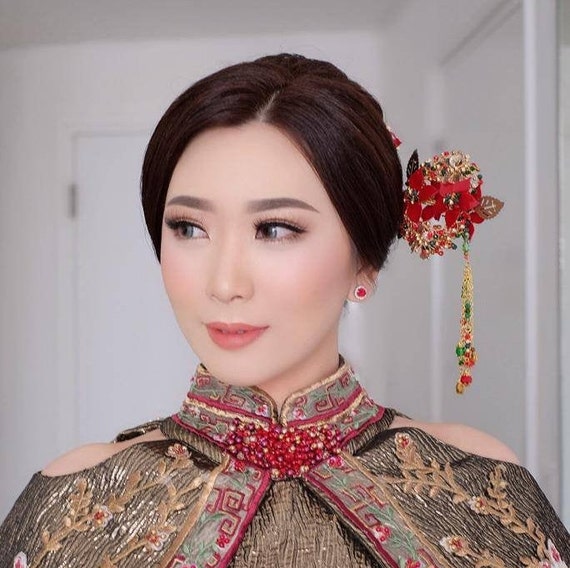The Cultural Tapestry of the Cheongsam
The cheongsam, a garment that has captivated the world with its elegance and sophistication, is more than just a piece of clothing. It is a living testament to the rich cultural heritage of China. As we delve into the meaning of cheongsam, we uncover a story woven with threads of tradition, modernity, and the continuous evolution of a nation’s identity.

A Legacy of Tradition
The cheongsam, or qipao as it is known in Mandarin, has been a staple in Chinese fashion for centuries. Its origins can be traced back to the Manchu people, who brought this style to the forefront during the Qing Dynasty. As time passed, the cheongsam evolved, reflecting the changing times and the dynamic nature of Chinese society.

Modern Interpretations
In the contemporary era, the cheongsam has taken on a new life. Fashion designers and enthusiasts alike have embraced this traditional garment, infusing it with modern elements while preserving its cultural essence. The meaning of cheongsam has expanded to include a fusion of the old and the new, a symbol of cultural pride and a canvas for creative expression.

Global Recognition
The cheongsam has transcended borders, becoming a symbol of Chinese culture recognized globally. From high fashion runways to red carpet events, the cheongsam‘s silhouette is a sight to behold. It has been embraced by celebrities and fashion influencers, who have contributed to its modern interpretations and global appeal.

The Evolution of Elegance
The evolution of the cheongsam is a reflection of the Chinese people’s continuous pursuit of beauty and refinement. Each adaptation tells a story of cultural evolution, where the meaning of cheongsam is not just about preserving the past but also about embracing the future. It is a garment that speaks to the resilience and adaptability of a culture that honors its roots while looking forward to new possibilities.

A Celebration of Identity
As we celebrate the cheongsam, we are not only acknowledging a piece of clothing but also the cultural identity it represents. It is a celebration of the Chinese spirit, a testament to the enduring legacy of a people who have weathered the sands of time. The cheongsam stands as a beacon of cultural pride, a symbol of unity, and a reminder of the rich tapestry of Chinese history.






